Educators
Welcome to the Climate Box Educators’ Section! This section provides useful guides and supplementary materials on incorporating climate change topics into the classroom and the broader educational process. Additionally, this section includes a module on building teachers’ capacity to effectively deliver climate change education, along with other resources to support climate education in schools.
Use the links below to explore and download materials.

Teacher's Guide
Part 4 of the Climate Box textbook provides practical guidance to teachers on how to effectively use Climate Box materials to integrate climate change-related topics into the educational process at school. It includes:
- Step-by-step instructions on conducting climate change education at school
- Tips for engaging students with interactive activities
- Guidelines on adapting materials for different subjects and education levels
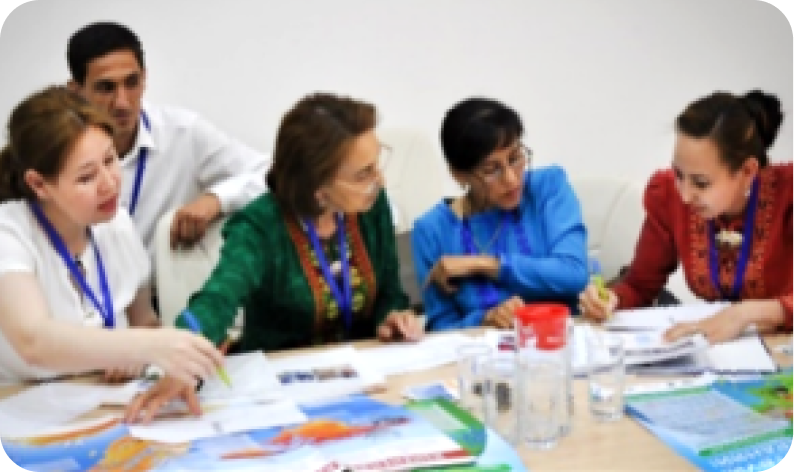
Training of Teachers Manual
Empower educators with the knowledge and skills to effectively teach climate change topics through the Training of Teachers Manual. This comprehensive resource is designed to support teacher capacity-building and professional development, ensuring that climate education is integrated into various subjects in an engaging and impactful way. It offers practical strategies to help teachers confidently deliver climate-related lessons, foster critical thinking, and encourage student-driven action on environmental challenges.
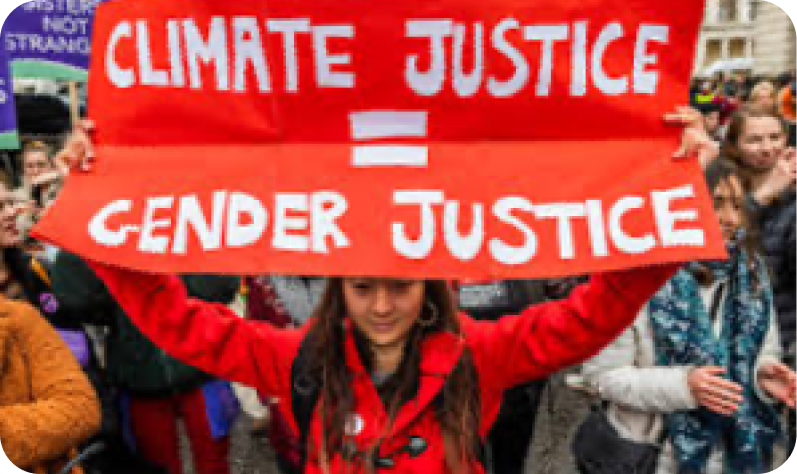
Incorporating Gender Aspects into Climate Change Educational Programs
Explores the intersection of climate change and gender, providing insights and practical guidance on integrating gender perspectives into climate education. This manual offers recommendations on discussing these topics effectively using the Climate Box Toolkit to foster inclusive and equitable learning experiences.

Lesson Plans
This section provides ready-to-use lesson plans to help teachers integrate climate change topics into different subjects across various grade levels. These lesson plans serve as examples and inspiration, allowing educators to further develop and adapt their own lessons to fit their specific classroom needs.
Teachers will find lesson plans for geography, biology, physics, social studies, and other subjects, demonstrating how climate change education can be seamlessly incorporated into the curriculum.
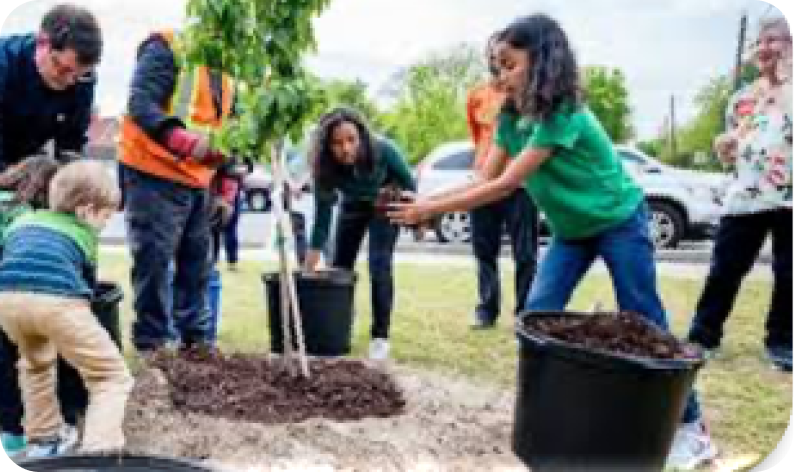
Extra-curricular Activities
Go beyond the classroom! Extra-curricular activities provide opportunities for teachers to integrate climate education into school life beyond traditional lessons. These activities can be adapted for different age groups and learning environments, making climate learning interactive, engaging, and action-oriented.
This section offers ideas for engaging students through, interactive games and activities, outdoor learning experiences and other activities.
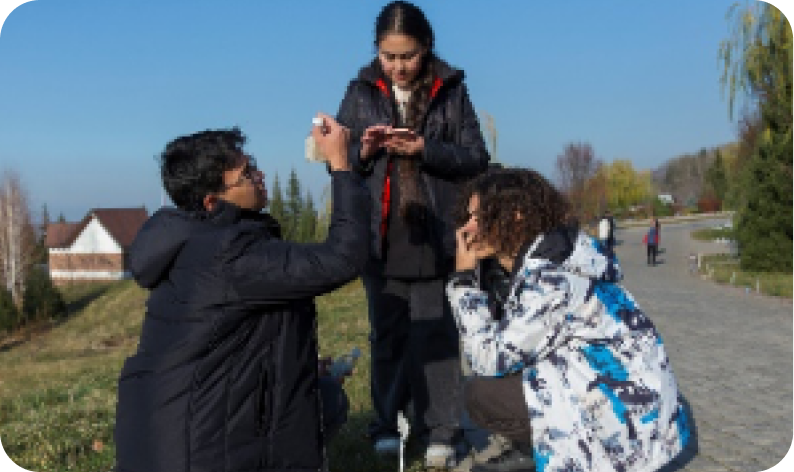
From Knowledge to Action: A Guide to Project-Based Climate Learning
Encourage student-led climate initiatives by incorporating project-based learning into the curriculum. Teachers will find step-by-step guidance on organizing engaging, hands-on projects that empower students to take real-world climate action.
This section provides guidelines on developing and implementing climate change-related projects, focusing on:
- Reducing carbon footprints through practical actions and behavior changes.
- Adapting to climate change by exploring resilience strategies for communities and ecosystems.
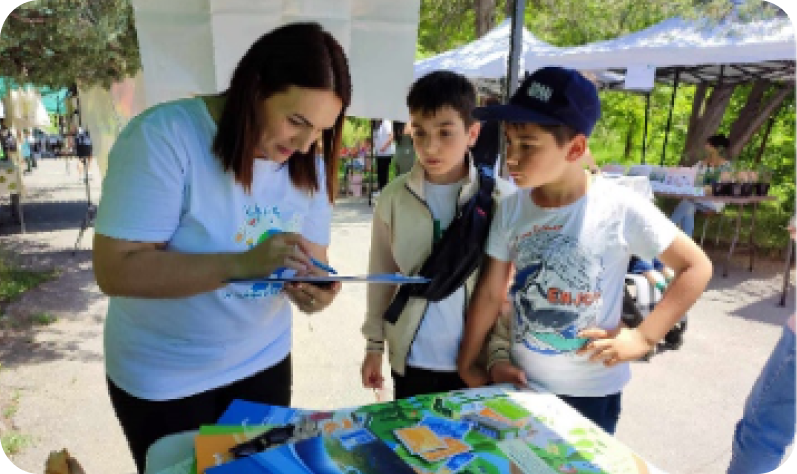
Guide on Evaluation of Climate Change Education
The guide offers tools and methodologies for assessing the effectiveness of climate change education. It provides practical approaches for measuring student engagement, knowledge retention, and the impact of climate-related learning activities, helping educators refine their teaching strategies and improve learning outcomes.
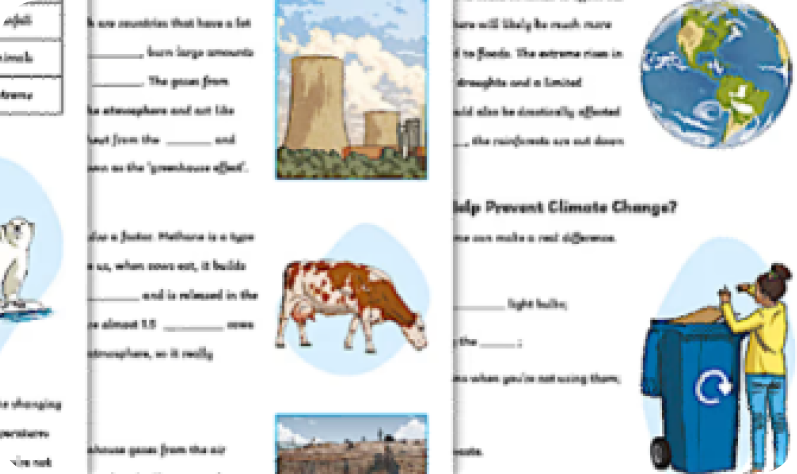
Collection of Tasks & Exercises
Strengthen climate knowledge and critical thinking skills through interactive tasks and exercises designed for various age groups and learning environments. These activities can be integrated into different subjects such as geography, biology, and social studies, as well as used during extracurricular activities to engage students beyond the classroom.


